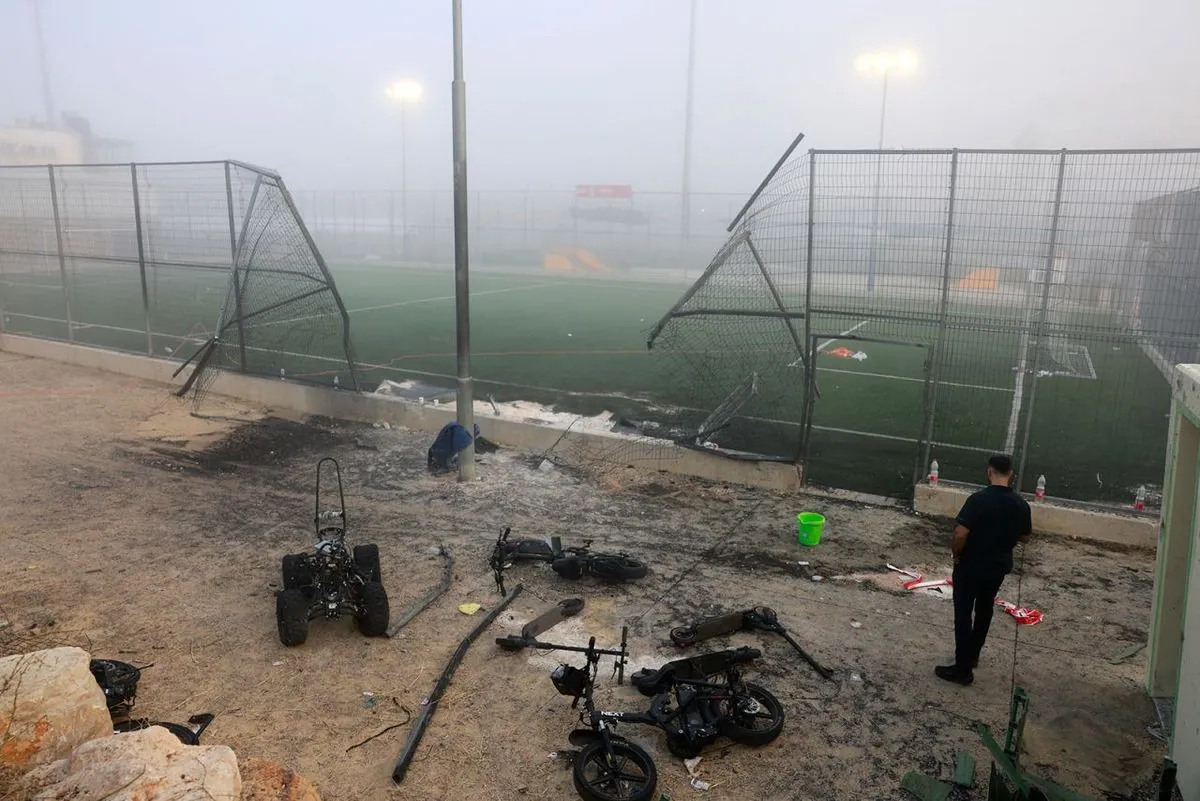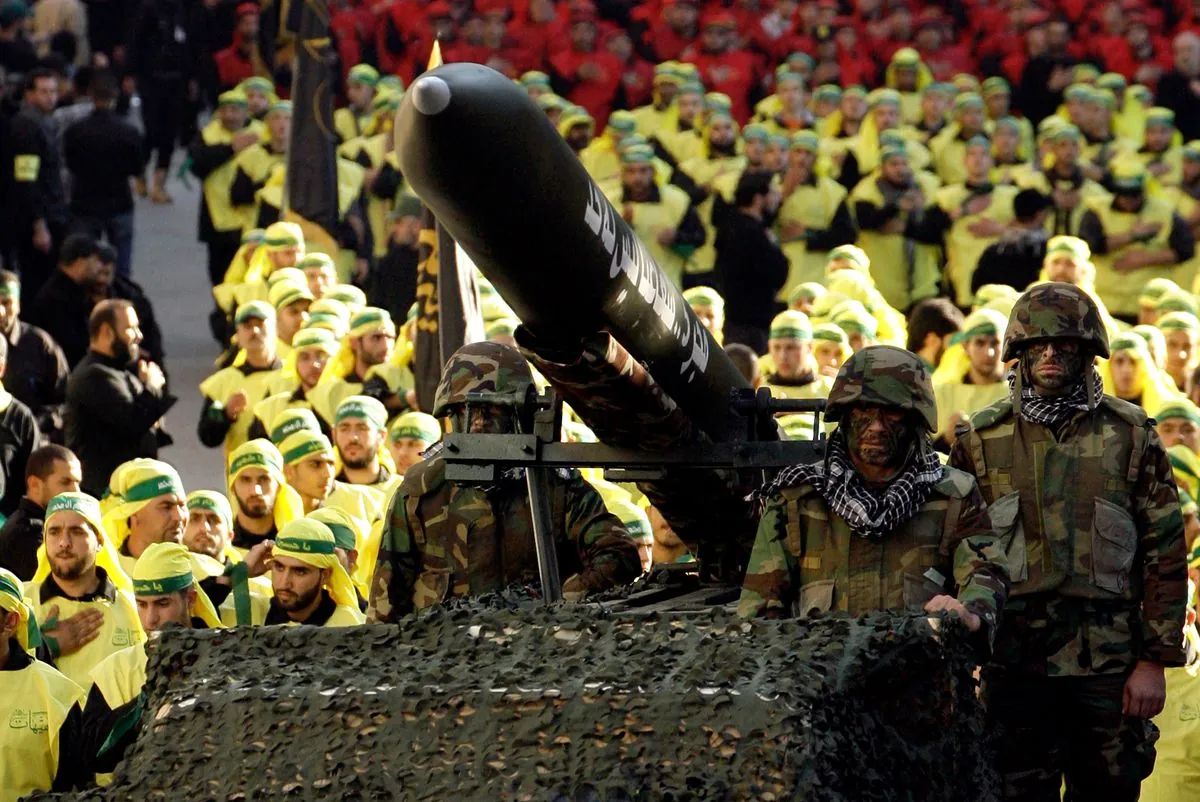Deadly Rocket Attack Sparks Fears of Israel-Hezbollah Escalation
A rocket strike in the Golan Heights kills 12 children, prompting Israel to consider a "harsh" response. International efforts aim to prevent a full-scale war between Israel and Hezbollah.

A recent rocket attack on a soccer pitch in Majdal Shams, a Druze town in the Israeli-controlled Golan Heights, has resulted in the deaths of 12 children. This incident, occurring on July 27, 2024, has been attributed to Hezbollah, the Iran-backed Lebanese militia, by both Israel and the United States. The attack marks the most severe incident in the region since the events of October 7, 2023.
In response, Benjamin Netanyahu, Israel's Prime Minister, has pledged a significant retaliation. Following a lengthy meeting on July 28, 2024, Israel's security cabinet granted Netanyahu and Defense Minister Yoav Gallant the authority to determine the timing and scale of Israel's response.
The situation has raised concerns about a potential escalation into a full-scale conflict between Israel and Hezbollah. Such a war could have devastating consequences for both nations, given Hezbollah's estimated arsenal of 130,000 missiles and rockets, which could overwhelm Israel's air defenses.
Assaf Orion, a retired Israeli brigadier general, suggests that Israel's response will likely aim to strike a balance between demonstrating strength and avoiding all-out war. The decision will involve considerations such as target selection, strike depth into Lebanon, and the element of surprise.

Tensions between Israel and Hezbollah have been ongoing since October 8, 2023, resulting in the displacement of approximately 140,000 people on both sides of the border. The conflict has seen Hezbollah launch thousands of rockets and drones into Israel, while Israel has responded with numerous airstrikes.
The potential for a full-scale war raises memories of the 2006 conflict, which lasted just over a month and resulted in significant civilian casualties on both sides. Human rights groups accused both parties of indiscriminate attacks during that time.
"I've read estimates of what Hezbollah could do to us in three days that are just horrendous. You're talking about knocking out all of our essential infrastructure, oil refineries, air bases, Dimona."
International efforts are underway to prevent further escalation. Antonio Tajani, Italy's Foreign Minister, has engaged in discussions with his Israeli and Lebanese counterparts, while Emmanuel Macron, the French President, has spoken directly with Netanyahu.
The United States, through White House national security spokesperson John Kirby, has expressed confidence in avoiding a broader war while acknowledging Israel's right to respond. The administration is focused on finding a diplomatic solution to reduce tensions and allow displaced families to return home.
This recent attack comes at a critical time, as negotiators from the United States, Israel, Qatar, and Egypt met in Rome on July 29, 2024, to discuss a potential cease-fire in Gaza. The ongoing situation with Hezbollah adds complexity to these negotiations, as Israel seeks to maintain control of the Egypt-Gaza border and prevent Hamas militants from returning to northern Gaza.
As the international community watches closely, the decisions made by Israeli leadership in the coming days could have far-reaching implications for regional stability and the ongoing efforts to achieve peace in the Middle East.



































